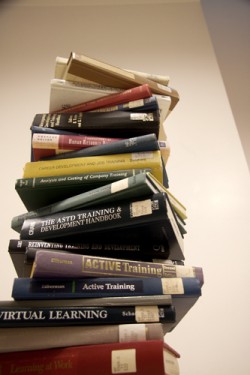Literacy rates in the U.S. are appalling. Approximately 32 million American adults lack basic literacy skills, according to the U.S. Department of Education, and a National Center for Education study found that 38 percent of fourth grade students fell below the most basic literacy level.
Upping the books
Literacy rates in the U.S. are appalling. Approximately 32 million American adults lack basic literacy skills, according to the U.S. Department of Education, and a National Center for Education study found that 38 percent of fourth grade students fell below the most basic literacy level.

These studies, while more than nine years old, still present an alarming reality—even more so because illiteracy is directly linked to low graduation rates. And for a long time now, Portland, like many big cities, has suffered from low high school graduation rates, which currently sit at less than 62 percent.
Mark Van Ness, founder of Bazillion Books for Kids, hopes to effect change and turn those low rates upside down. After hearing about the low graduation rate, Van Ness decided he needed to do something to help and contacted Indiana-based book reseller Better World Books. The company agreed to donate 1 million children’s books at no cost.
While it’s wonderful that Van Ness and Better World have been so generous, charity can only go so far. The books will eventually run out, and what then? Without a support system in place to make the donation worthwhile, it simply becomes another memorable contribution to Portland’s kids. Increasing literacy requires more than free books, and if we want to focus on the soberingly low graduation rate, we’ve got to find ways to curb the causes.
Many studies have shown that lower income usually means lower proficiency in reading, writing and mathematical literacy. Those same studies show that children who can’t read by third grade often end up dropping out of high school, thus creating the low graduation rate Van Ness is so worried about.
One of this subject’s major studies, “Early Warning! Why Reading by the End of Third Grade Matters,” produced by the Annie E. Casey Foundation, states that third grade is one of the literacy milestones in a child’s educational development. The study also says that one of the best ways parents can help their children succeed at school in general is by participating in shared reading.
“Up to third grade, children are learning to read. Starting in fourth grade, they are reading to learn,” writes Abel Ortiz, one of the study’s directors. If children don’t have proficient reading skills by this time, it will directly impact their learning capabilities and their ability to succeed in school.
Preventing kids from dropping out of high school involves multiple facets, and while improving the literacy rate seems the best solution, for kids in low-income households, neighborhoods and school districts, the challenge is that much greater.
A report from Strategies for Children Inc. revealed that low-income children hear 200 million fewer words than higher-income children. Simply put, parents need to read to their kids and participate in literacy programs because those children are less likely to drop out of school.
Supporting charities like Van Ness’ Bazillion Books for Kids and summer reading programs provided by libraries is one way to help raise literacy rates. Multnomah County Library’s summer reading program has been quite successful at getting kids to read. By offering small incentives like free books or other prizes for reaching reading benchmarks, the library encourages kids to become more involved in improving their own literacy.
High literacy rates will help raise graduation rates, which in turn means more funding for education, which ultimately results in more—and better—schooling programs. Until that happens, though, we need to do everything possible to give these kids a chance. Go, books!



